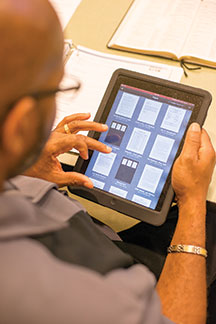
By Joseph Umidi, D.Min.
The year was 1975. The Master of Divinity (MDiv) choices I had were one-size-fits-all, with only the “big three” main Christian education, preaching and evangelism options. All were offered on campus, and only during the day.
Thirty-nine years later, it’s a whole new world.
MDiv degrees are now much more accessible than when I pursued mine. For the past 15 years, Regent University — where I’ve taught in the MDiv program for 28 years — has been offering a fully accredited distance-learning program that enables one to earn an MDiv degree while balancing a busy schedule.
————————————————————————————————————————
RELATED RESOURCES:
- Considering online education?
- Learning by heart
- After initial skepticism, online theological education growing
————————————————————————————————————————
Now, more universities (Liberty University, Dallas Theological Seminary, Fuller Theological Seminary, Southwestern Baptist Theological Seminary, Northwest Nazarene University, Gordon Conwell Theological Seminary, Southern Baptist Theological Seminary and George Fox University) are giving students these options, which are critical to accommodating today’s pace of life.
The key is accessibility. And, the future of the MDiv might rise or fall on this key factor.
MDivs are more variable, now
Perusing the catalogs of today’s MDiv major and minor emphases reveals a wide spectrum of targeted concentrations, including Biblical Studies, Chaplain Ministry, Church & Ministry, Christian Theology, Intercultural Studies, Interdisciplinary Studies, History of Christianity, Worship & Renewal, Youth, Apologetics, Urban Ministry, Leadership Coaching, Management, Counseling, Spiritual Formation, Community Transformation, Intercultural Studies — and the list goes on.
All will require a core competency for Pastoral Leadership, but envision a wide variety of interests to be explored. Some are recognizing the key roles of media, communications and executive management and systems development which are critical for growth and expansion in today’s large churches. Courses on supervision,  management, strategic planning, budgeting and more are now part of this option — all of them focuses once reserved for the MBA folks alone.
management, strategic planning, budgeting and more are now part of this option — all of them focuses once reserved for the MBA folks alone.
To make room for these necessary competencies, faculties are debating the role of language studies (up to 18 semester credits) in today’s leaders, which were once off-limits for discussion. Some faculties are opting for minimal courses that bring maximal use of today’s powerful language software programs — only a click away. The power of these programs has accelerated to a level that can provide much assistance, even to those who have minimal language training.
More affordable? Yes and no
When it comes to the cost of getting an MDiv, it might be a more affordable process today, but only in the short term. Many modern MDiv graduates have borrowed their way into the degree and living expenses that were so easy to pay for inside the student loan. Now, with student loan debt in excess of $50,000, these graduates are often unable to take on roles at rural churches or church plants, and are finding their way back to their former work — in bi-vocational roles — out of necessity.
A Nov. 20, 2013 column in The Wall Street Journal — “A Federal Anti-Education Plan” — seems to confirm the need to make MDiv programs more affordable and less dependent on federal loan money. Co-authors Bob Kerry and Jeffery T. Leeds opine on a November 2013 regulation proposed by Secretary of Education Arne Duncan called “Gainful Employment.” Essentially, the regulation proposes to cut off federal student aid to certain colleges whose former students don’t enjoy “gainful employment,” as determined by the Department of Education and measured by factors such as loan repayment rate.
The movement toward Massive Online Open Courses (MOOCs) might enable concerned administrators and faculty to bring down the costs of getting a MDiv degree, as well as other degrees. These schools propose offering free online courses to a much larger global market, and then finding a way to offer credit to those who need it for their careers. The innovative idea here is that this would open the market to a much larger student body and enable the price of courses to drop significantly.
Several schools have developed task forces to determine the needs of the 21st-century minister, and the kind of training that will be required. At the top of the list is the need for drastically decreasing the costs, and finding ways to partner with local churches — as well as denominations and national ministries — to make it possible.
The very survival of some of our schools might be determined by how they collaborate with those who are innovating ways to make this happen.
Joseph Umidi, DMin., is a professor of practical theology at Regent University in Virginia Beach, VA.
Feature photo: The author (left) leads an MDiv course. (Photo courtesy of Regent University)



Blessings to you Dr. Umidi,
I received my M.Div. from Regent University May 2014 and am delighted to say that I received a great theological education that required me to work very hard which I can truly appreciate. It brings me great joy when I think of my professors at Regent including yourself!
Thank You Dr. Umidi for your mentoring